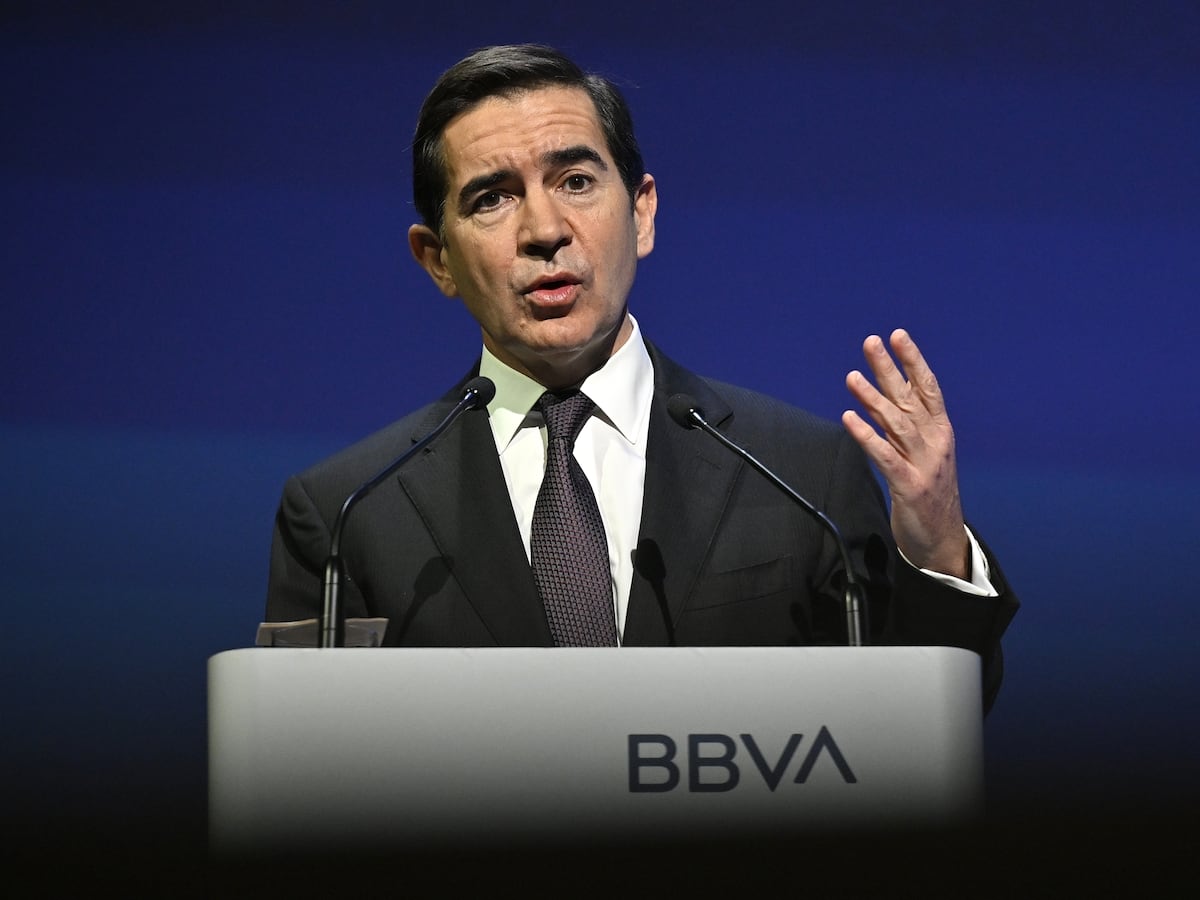BBVA seeks final approval from ECB for Sabadell takeover bid | Companies

BBVA has taken another step to launch a takeover bid for Sabadell. The bank, led by Carlos Torres Vila, has asked the European Central Bank (ECB) for permission to take over the Catalan entity and subsequently merge the two. BBVA has therefore already submitted all requests for approvals to the institutions that must approve the takeover proposal: in addition to the ECB and the National Securities Market Commission (CNMV), to the National Markets and Competition Commission (CNMC), to which it has raised it last Friday.
The ECB must express its opposition to the operation so that it can continue. The supervisor’s primary task is to ensure the stability of the financial system, so its analysis will be based on prudential criteria and how the merger of both banks will affect solvency. According to the BBVA President himself, the ECB is not expected to create obstacles. “In the first interaction with the supervisors, from their point of view there are no obstacles, they are even positive about consolidation, given that the enterprises are gaining scale,” the banker said at a press conference, explaining the takeover proposal. The ECB can make a decision within a period of 15 to 70 days.
Two weeks ago, the bank already submitted a request to the CNMV for authorization and permission to process the operational brochure. Once approval is received from the ECB and the stock market regulator, BBVA can begin the takeover acceptance period. However, the takeover bid is subject to the condition that at least 50.01% of Sabadell shareholders accept the bank’s proposed share swap (it is offering one BBVA share for every 4.83 Sabadell shares, which at current prices represents a 7% premium ). Likewise, BBVA has already called an extraordinary meeting for July 5, at which investors must approve a capital increase to issue new shares that will be distributed to Sabadell shareholders.
Last Friday, BBVA also presented the authorization to the CNMC, which will be the key body in the operation. Financial sources interviewed do not expect Competition to deny the merger, but it could delay it further than BBVA expects. Concentration analysis consists of two stages. In the first stage, which lasts about a month (not counting pauses that may occur to request additional information), the operation is analyzed and it is decided whether it should be archived, whether it can be authorized or, if the concentration requires a more detailed analysis due to competition issues, which it can cause.
The last two bank mergers (CaixaBank and Bankia and Unicaja and Liberbank) were closed in the first stage and took about four months. But in the event that the CNMC analysis requires more detailed information, this will lead to a second stage of the procedure, where the participation of interested third parties is expected, and it can be extended for another three months, not including possible pauses for requesting additional data. information. In total, this can last a year. It also remains to be seen what conditions the competition authority will impose for accepting the operation, since the concentration in some regions (especially in Catalonia and the Valencian Community) will be very high, as well as in the business of small and medium-sized companies. Financial sources explain that this could even force them to divest part of the business.
Ultimately, after a competitive examination, BBVA will need government approval for the merger of both companies. The government, which has publicly stated its opposition to the operation, will have the final say, but if it rejects it, it must justify its decision.
Follow all the information Five days V Facebook, X And LinkedInor in our newsletter Five days program
Newsletters
Sign up to receive exclusive economic information and financial news that matter most to you.
Register!
